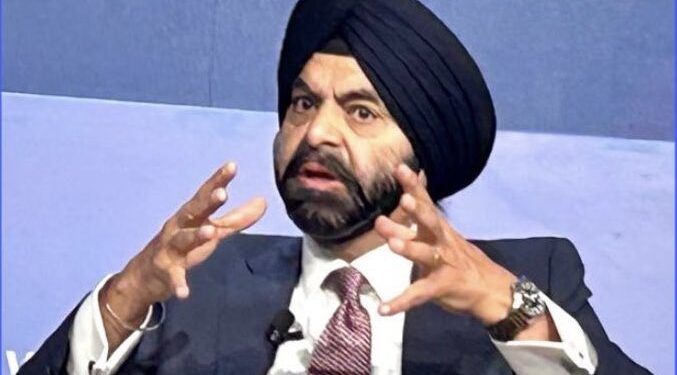The President of the World Bank, Ajay Banga, has cautioned affluent nations against overlooking Africa amidst competing demands for development aid, particularly amidst ongoing conflicts in regions like Ukraine and Gaza. According to a report in the Financial Times, African leaders are advocating for $120 billion in aid to combat climate change and foster development, as the continent grapples with devastating floods and droughts.
Highlighting data from the World Bank, it was revealed that one in three low-income countries eligible for support through the International Development Association (IDA) has regressed compared to pre-pandemic levels, with a significant portion of these countries located in Africa. Banga emphasized the critical importance of investing in Africa, stressing that the continent’s population is projected to nearly double by 2050, with a quarter of the world’s population being African.
Banga underscored Africa’s youth as its most valuable asset but warned that neglecting their needs could have dire consequences. The IDA, which provides grants and concessional loans to 75 low-income nations, including many in Africa, plays a crucial role in fostering development and addressing the impacts of climate change.
Acknowledging the strain on resources due to various crises, Banga emphasized the need to effectively advocate for increased support for Africa through the IDA. This sentiment was echoed by Abebe Selassie, the IMF’s Africa Director, who noted a decline in bilateral budget assistance from key donors and emphasized the need for organizations like the World Bank and IMF to bridge the gap.
African nations are advocating for more concessional funding and flexibility in repayment schedules, particularly in the face of climate-related disasters. Kenya’s President, William Ruto, highlighted the devastating impact of floods in East Africa, while also drawing attention to droughts affecting countries in Southern Africa.
Prior to Banga’s tenure, the World Bank faced criticism for its perceived lack of action on climate change. Ruto called for increased solidarity from wealthier nations, urging them to boost their contributions to the IDA to address pressing global challenges.
In the quest for a more equitable global financial architecture, leaders like Ruto have emphasized the importance of increased support for vulnerable nations affected by climate change and other crises. Efforts to triple the IDA’s financing capacity have been recommended by the G20 independent expert group, aiming to bolster support for countries in need by the end of the decade.
























